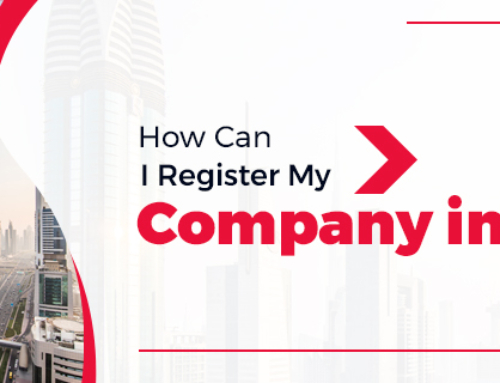Are you an entrepreneur with dreams of expanding your business to the bustling city of Dubai? Well, you’re in luck! Dubai’s free zones offer a plethora of opportunities for international businesses to thrive in a tax-free environment. However, navigating the process of obtaining a free zone license can be a daunting task. That’s where we come in. In this step-by-step guide, we will unlock the secrets of obtaining a free zone license in Dubai, providing you with the knowledge and tools needed to make your dream a reality.
From understanding the different types of free zones to the application process and required documents, we’ve got you covered. So, whether you’re a start-up looking to establish a company in Dubai or an established business seeking to expand, join us on this journey.
So, you should speak with TheWhiteworth if you’re looking for the ideal company formation advisor.
Benefits of Obtaining a Free Zone License
Contents
- Benefits of Obtaining a Free Zone License
- Types of Free Zone Licenses
- Step 1: Research and Choose the Right Free Zone
- Step 2: Understand the Licensing Requirements
- Step 3: Prepare the Necessary Documents
- Step 4: Submit Your Application
- Step 5: Payment and Processing
- Step 6: Obtaining Your Free Zone License
- Common challenges and how to overcome them
- Final thoughts
Dubai’s free zones offer numerous benefits to businesses, making them an attractive option for entrepreneurs looking to establish or expand their presence in the city. One of the key advantages is the tax-free environment provided by these zones. Businesses operating within free zones are exempt from corporate and personal income taxes for a specified period, which can range from 15 to 50 years depending on the free zone.
In addition to the tax benefits, free zones also offer 100% foreign ownership, allowing entrepreneurs to have full control over their businesses without the need for a local partner. This provides a sense of security and autonomy for international businesses operating in Dubai. Furthermore, free zones provide easy access to world-class infrastructure, state-of-the-art facilities, and a skilled workforce, making it easier for businesses to operate and grow their business in Dubai.
Types of Free Zone Licenses
Before diving into the process of obtaining a free zone license, it’s essential to understand the different types of licenses available in Dubai’s free zones. There are several categories of licenses, each catering to specific business activities for business setup in Dubai. Some common types of licenses include –
1. Trading License: This license is suitable for businesses involved in buying and selling goods.
2. Service License: This license is suitable for businesses providing services such as consulting, marketing, IT, and legal services. It allows businesses to offer their services within the free zone or outside the UAE.
3. Industrial License: This license is suitable for businesses engaged in manufacturing, processing, or assembling activities. It allows businesses to import raw materials, manufacture goods, and export the finished products in Dubai.
4. E-commerce License: This license is suitable for businesses operating in the online marketplace. It allows businesses to sell goods and services online, without the need for a physical presence in the UAE.
Step 1: Research and Choose the Right Free Zone
Choosing the right free zone is crucial for the success of your business in Dubai. Each free zone specializes in specific industries and offers unique benefits, so it’s essential to conduct thorough research to find the one that aligns with your business goals and requirements. Factors to consider when choosing a free zone include the industry focus, proximity to key markets, infrastructure, facilities, and the cost of setting up and operating a business within the zone for company formation in Dubai.
Step 2: Understand the Licensing Requirements
Once you have selected the free zone that best suits your business, it’s important to understand the licensing requirements specific to that zone. Each free zone may have different criteria and regulations for obtaining a license, so it’s crucial to familiarize yourself with the specific requirements before proceeding with the application process for business setup in Dubai. Some common requirements include:
- A detailed business plan outlining your business activities, target market, and growth projections.
- Proof of funds or financial statements demonstrating your ability to cover the initial investment and operational costs.
- Passport copies and personal information of the shareholders and directors of the company for the company in Dubai.
- No objection certificates from the existing sponsor (if applicable).
- Depending on the business activity, additional documents such as technical approvals, health and safety certificates, and trade licenses may be required.
Read Also This – Guide to Obtaining a Virtual License for Your Company in Dubai
Step 3: Prepare the Necessary Documents
Once you have a clear understanding of the licensing requirements, it’s time to gather and prepare the necessary documents for your application. It’s crucial to ensure that all documents are complete, accurate, and meet the specific requirements of the free zone for business in Dubai which are as follows:
- Completed application form provided by the free zone authority.
- Copy of the business plan outlining your business activities, target market, and growth projections.
- Passport copies and personal information of the shareholders and directors of the company.
- Proof of funds or financial statements demonstrating your ability to cover the initial investment and operational costs.
- No objection certificates from the existing sponsor (if applicable).
- Depending on the business activity, additional documents such as technical approvals, health and safety certificates, and trade licenses may be required.
Read Also This – A Comprehensive Guide to Obtaining a Day Care Center License in Dubai
Step 4: Submit Your Application
Once you have gathered and prepared all the necessary documents, it’s time to submit your application to the free zone authority. Most free zones have an online portal or designated application centers where you can submit your application. It’s essential to carefully review the application guidelines and ensure that all required documents are submitted correctly to avoid any delays or rejections for business setup in Dubai. After submitting your application, you will receive a confirmation and reference number, which you can use to track the progress of your application.
Step 5: Payment and Processing
After submitting your application, you will be required to pay the applicable fees and charges. The fee structure may vary depending on the type of license and the services you require within the free zone. It’s crucial to review the fee structure and make the necessary payments promptly to avoid any delays in the processing of your application. Once the payment is made, the free zone authority will begin processing your application and conducting the necessary due diligence checks for business setup in Dubai.
Step 6: Obtaining Your Free Zone License
After completing the payment and processing stage, you will be issued a provisional approval letter by an authority & then you will get the free zone license for your company in Dubai.
Common challenges and how to overcome them
1. One of the most common challenges when it comes to business setup in Dubai is navigating through complex legal and bureaucratic processes. From obtaining the necessary licenses to understanding the local laws, it can seem overwhelming at first.
However, with proper research and professional guidance, you can streamline this process and ensure compliance with all regulations.
Read Also This – Opening a Small Cafeteria in Dubai
Hiring a local consultant who specializes in business setups in Dubai can be a game-changer, as they can provide invaluable insights and assistance to help you maneuver through the administrative maze.
2). Another challenge that you might encounter is fierce competition in the market. Dubai is known for its thriving business ecosystem, attracting entrepreneurs from all over the world. As a result, various industries are highly saturated, making it essential for you to carve out a unique niche for your business.
Conducting market research, identifying gaps in the market, and offering innovative solutions are key strategies to stand out from the crowd. Additionally, building strong relationships and networking within your industry can open doors to collaborations and partnerships that can give you a competitive edge.
3) Finally, adapting to the cultural diversity and business etiquette in Dubai can also pose a challenge. The city is a melting pot of cultures, with people from different backgrounds and nationalities coexisting harmoniously. Understanding and respecting these cultural nuances is crucial for building successful business relationships. Familiarize yourself with local customs, traditions, and business practices to establish trust and credibility with potential partners or clients. Embracing diversity and inclusivity will not only help you overcome this challenge but also contribute to the overall success of your business.
Final thoughts
Once you have submitted your application, the free zone authority will conduct an initial evaluation of your application to determine whether it meets the required standards and criteria for issuing a free zone license. The authority will then schedule an on-site inspection of the company. Depending on the type of business, it can take several weeks or months for the authority to process your application and grant you a free zone license.
Read Also This – Business Culture in the United Arab Emirates
If your application is approved, the free zone authority will issue a free zone license which will include a detailed business plan, marketing materials, and other useful guidance for setting up your business in Dubai. However, there is no guarantee that your application will be approved – it is based on a number of factors, including the extent to which the business meets the required criteria and standards, the strength of your business plan, and the experience of the person submitting the application.






